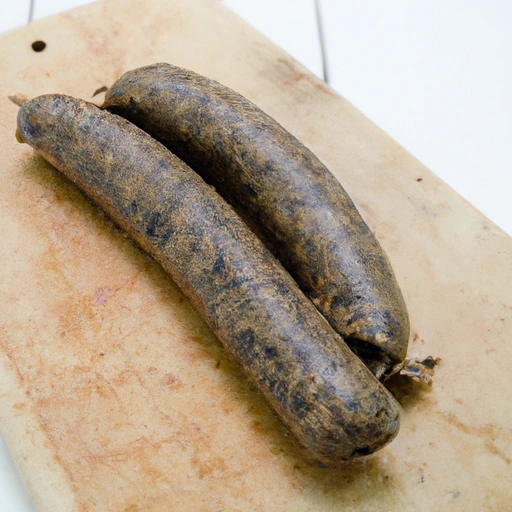Vegetarian Sausage
Description

Vegetarian sausage is a plant-based alternative to traditional meat sausages, designed to offer a similar taste and texture experience while aligning with vegetarian and vegan dietary preferences. These sausages are typically made from a combination of proteins derived from vegetables, grains, legumes, and sometimes soy or wheat gluten, known as seitan. Seasoned with a blend of herbs and spices, vegetarian sausages have become a popular choice in various culinary traditions across the globe, catering to the growing demand for meat-free options.
Common uses
Vegetarian sausages are a versatile ingredient, commonly used as a meat substitute in hot dogs, breakfast dishes, casseroles, stews, and grilling recipes. They are also often sliced and added to pasta sauces, stir-fries, and as a pizza topping, providing a savory flavor and satisfying texture.
Nutritional value
Calories
Typically, a single vegetarian sausage (around 2.5 oz or 70 grams) contains approximately 130-180 calories (540-750 kilojoules).
Protein
Vegetarian sausages are a good source of protein, offering about 10-20 grams per serving, depending on the ingredients used.
Fat
The fat content can vary widely, but on average, there are about 5-15 grams of fat per sausage, with a mix of saturated and unsaturated fats.
Carbohydrates
Carbohydrates in vegetarian sausages range from 5-25 grams per serving, often including dietary fiber from plant-based ingredients.
Vitamins
These sausages can be fortified with vitamins such as B12, which is essential for those on a vegetarian or vegan diet.
Minerals
Minerals like iron and zinc are also commonly found in vegetarian sausages, sometimes at higher levels than in meat sausages due to fortification.
Health benefits
Vegetarian sausages can contribute to a healthy diet by providing essential nutrients while containing lower levels of cholesterol and saturated fats compared to their meat counterparts. The plant-based ingredients can also offer the benefits of phytonutrients and fiber, which are important for digestive health.
Potential risks
Some vegetarian sausages may contain high levels of sodium and additives, such as preservatives and flavor enhancers, which should be consumed in moderation. Additionally, those with soy or gluten sensitivities should carefully read labels as many vegetarian sausages contain these allergens.
Common recipes
Vegetarian sausages are used in a variety of recipes, including vegan hot dogs, sausage and peppers, breakfast scrambles, and as a protein addition in vegan jambalaya or gumbo.
Cooking methods
They can be grilled, pan-fried, baked, or even cooked in a microwave. It is important to follow cooking instructions specific to the brand, as some vegetarian sausages may differ in texture and cooking time from traditional sausages.
Pairing with other ingredients
Pair vegetarian sausages with classic condiments such as mustard, ketchup, and relish, or try them with more unique accompaniments like mango salsa, chimichurri sauce, or curry mustard.
Summary
Vegetarian sausage is a nutritious and eco-friendly alternative to meat that has found its place in the hearts and plates of many. With a variety of uses and health benefits, it offers a versatile option for those looking to reduce their meat consumption without sacrificing flavor and enjoyment in their meals.